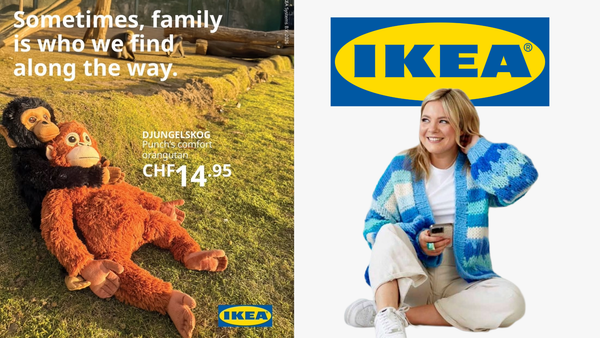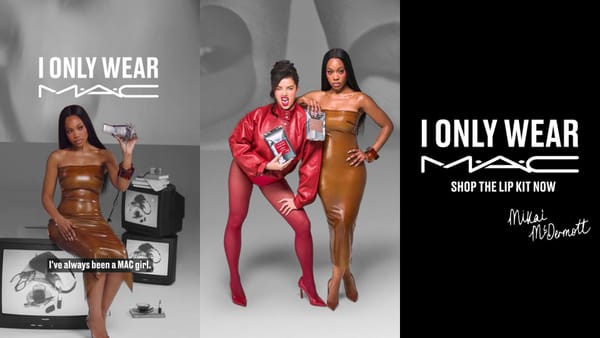As with all such tools, your successful adoption is dependent upon choosing the most appropriate ways to leverage it. This isn’t something you can do effectively without a firm grasp of what it means.
Let’s dive a little deeper into the concept of social proof.
What is Social Proof?
At its core, social proof is a marketing tool that keys into the psychology and behavior of consumers. People have a natural desire to follow the actions of others rather than take a risk by striking out on their own. They want to see how and why other people trust a company before they feel comfortable doing the same. This means you can encourage greater engagement by showing how other people are already meaningfully engaging with your brand.
It can actually make for a versatile strategy in your campaigns. This can be particularly relevant in brand marketing, where the goal is to increase public awareness of a brand. Alongside establishing a brand identity, it is vital to find ways to consistently connect with your target audience. Social proof can feature in multiple ways in this process. Testimonials can give your audience insights into how the brand provides value. The opinions of experts in the field can lend the brand cache.
This brings us to another key feature of social proof; you have choices when it comes to who can provide it. The obvious choice is multiple satisfied customers. But you can also make for a successful influencer campaign by utilising a range of trusted public figures. It doesn’t even have to be individuals who provide social proof. Logos and certifications from client businesses or professional organisations count here, too.
Engaging with influencers
Influencers are the ultimate contemporary resource for social proof. They already have an audience who not just follow them but engage with them in a variety of ways. Influencers’ opinions — both professional and personal — are trusted by their followers. In many ways, finding the right influencers to engage with can take a lot of the leg work out of establishing reasons for people to trust a brand.
This isn’t to say working with any influencer will be effective. It’s important to understand what the goals for your social proof are so you can identify the most appropriate influencers to include in your campaign. If your priority is brand exposure to a specific demographic, you’re likely to need to work with influencers with the most engagement with that population segment. However, if you want to demonstrate the superiority of a product, your demographic will need social proof from an influencer with expertise in the field.
However, once you’ve identified the right partners, you’ll find social proof can be a key component of all the major influencer marketing campaigns and strategies. Offering referral codes is most successful when audiences trust an influencer’s opinion of the product. Influencer and brand content collaborations are boosted in perceived quality if the demographic recognises the joint expertise involved. Making choices with social proof in mind can make a huge difference.
Leveraging case studies
While influencers traditionally sit in the awareness phase of the marketing funnel, they are also effective in the consideration and conversion aspects. This is where their relationship to social proof can be of considerable value. Influencers can provide evidence and resources to help inform consumers’ decision-making through impactful case studies.
In many ways, case studies are the most detailed and actionable forms of social proof. They provide clear examples of how the brand’s activities had a direct positive impact on a consumer or influencer. This is why marketers should seek to provide a selection of case studies in their campaigns. Understand what questions or uncertainties consumers have and provide case studies to address these accordingly.
But simply showing the practical impact isn’t enough to leverage a case study in conversion. Consumers want to see both the business and personal effect the brand has. This is where influencers can make a difference. A trusted source can give insights into how the brand presented a solution to a problem and how it connected with the influencer on an emotional level.
Using hard data
Data is one of the most prevalent resources in our digital landscape. It is also a good form of social proof. The right use and presentation of statistics can help to drive consumers toward conversion. This is because it keys into social proof’s core tenet of giving the impression that action represents the behavior of the majority.
From an influencer marketing standpoint, the most significant statistic is follower count and engagement. When working with an influencer, it’s important to boast about subscriber and follower numbers. It is part of the natural human psychological response to consider if a lot of other people like them are listening to someone’s opinions, they should be doing the same. It’s not always as simple as having a direct influence upon immediate engagement, but it does factor into establishing credibility.
Other social proof hard data will include percentage scores on customer satisfaction, numbers of units or services sold, and how much money the average customer saves. It’s important to keep these figures simple and consumable, though. If your consumer can’t immediately tell how others have benefitted from the service, it’s unlikely to be effective.
Social proof is about providing consumers with information to suggest the majority of people like them are engaging with a product or service. Influencers play a key role in this practice, as they represent credible figures your demographic trusts. By leveraging case studies and incorporating hard data, your influencer marketing campaigns can help encourage more consumers toward engagement and conversion.








